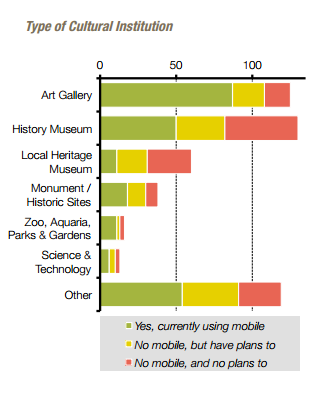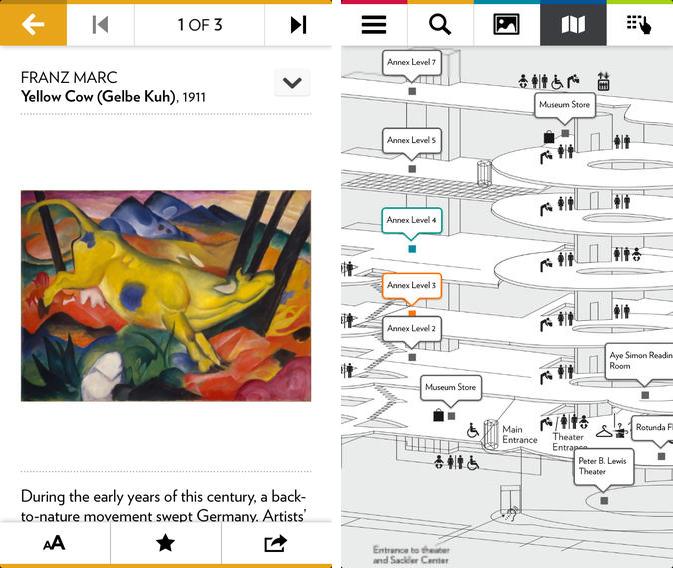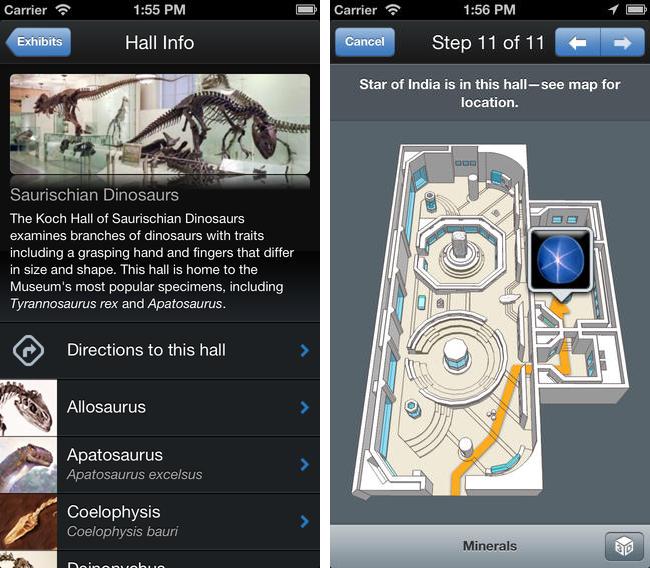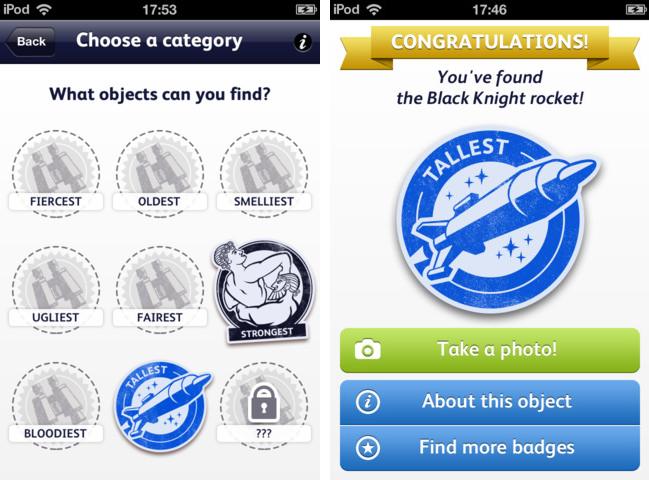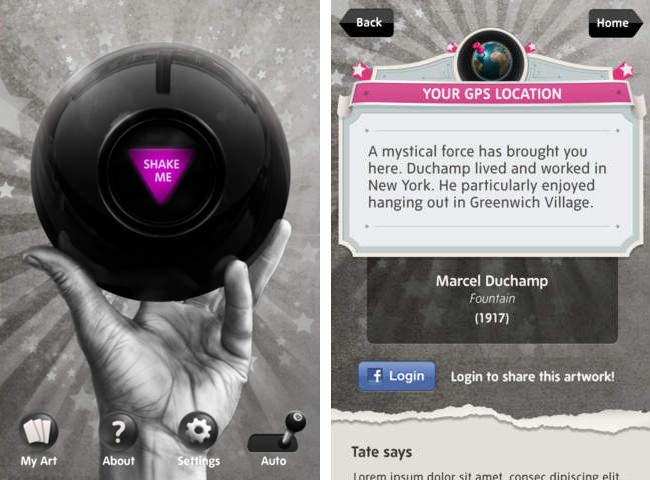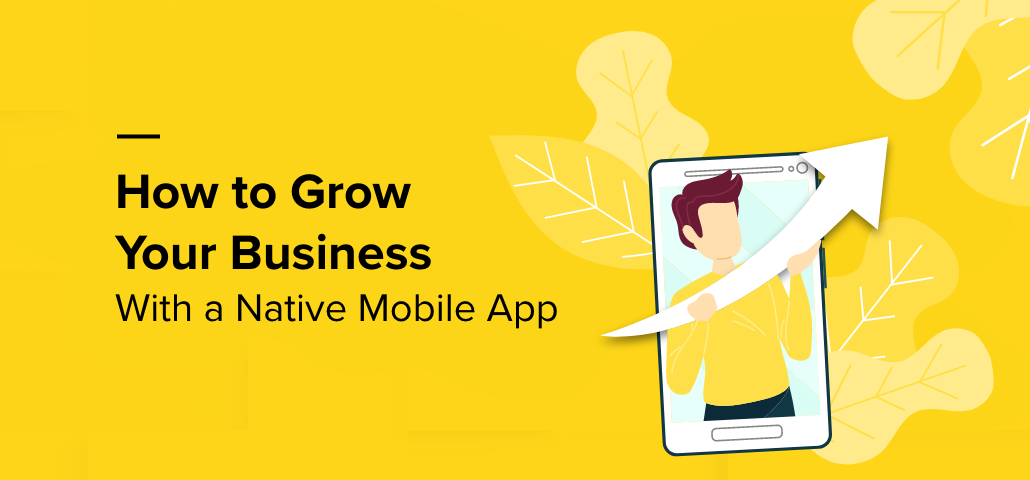Museum Apps Turn To The Mobile Experience
This month Gartner estimated the number of downloads in app stores to reach 102 million in 2013, from just 64 billion during 2012. Out of the total number of downloads in 2013, 91% will be free apps. “We expect strong growth in downloads through 2014, but growth is forecast to slow down a bit in later years,” mentioned Sandy Shen, research director at Gartner.
All industries are noticing this and museums are not an exception. According to a survey done by Loïc Tallon in 2013 on 551 museum professionals US, Canada and UK, 43% of respondents are working at a cultural institution that currently offers a mobile experience, while 23% at institutions that are planning to offer one.
The institutions that are most engaged and active with mobile technology are the art galleries and history museums.
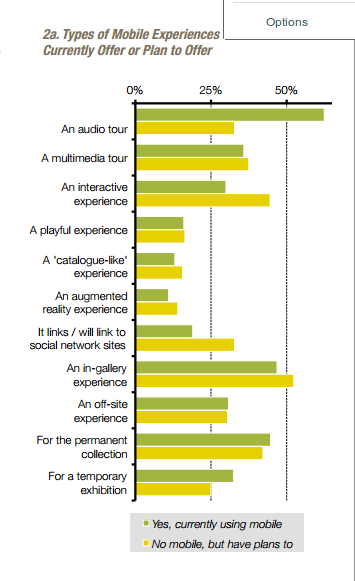
The most popular objective for a mobile project is to engage the visitor in new ways, while generating more money is the least popular reason. When it comes to who is the audience museums are targeting, it’s the young adults (ages 18-35). Museums are taking the leap and trying to integrate old features like audio tours with new interactive experiences, like games or augmented reality.
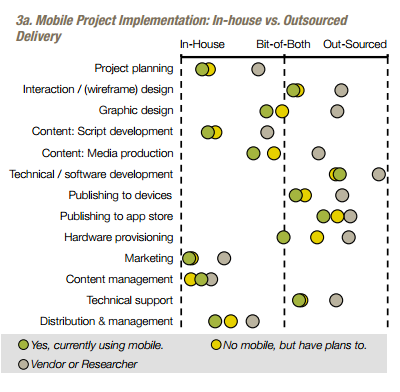
The survey also highlights the way museums are preferring to implement mobile projects, preferring to use internal resources to develop content and to outsource the technology related tasks.
Museums can take advantage of the qualities that mobile apps are providing and encourage visitors to take pictures, share content on social networks and spread the word about the museum and certain events. For example, the Guggenheim’s app presents you 1,300 works from the museum’s collection, let’s you pick your favorite ones and also share them on Facebook, Twitter or by email. Additionally it also shows you the location of the piece in the museum’s building. Check it out for iOS or Android.
The iPhone app from the American Museum of Natural History uses turn-by-turn navigation to guide you through a variety of Museum-designed tours or it lets you create your own tour from a list of popular exhibits, specimens, or artifacts.
Museum Explorer for iPhone let’s you explore the National Museum of Scotland in Edinburgh in a new and fun way. The app uses basic game mechanics and you’ll have to identify the strongest, fiercest, tallest and even the smelliest object in the museum in order to win explorer badges in the process.
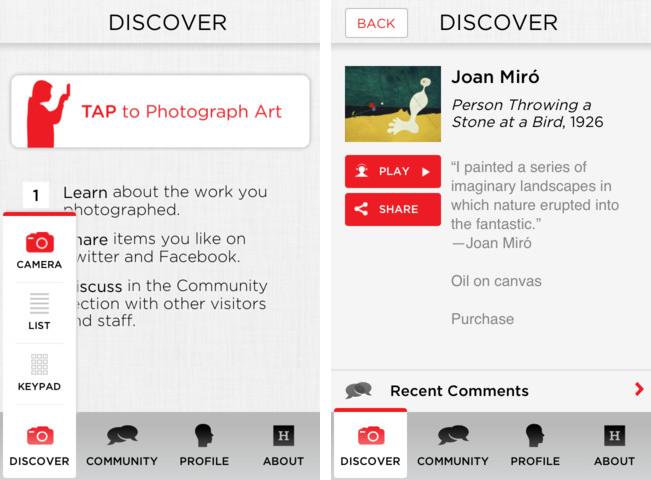
There’s something magic in snapping a picture and the app recognizing the artwork you’re looking at. ArtClix from the High Museum of Art, Atlanta, is doing exactly that and additionally it also brings a social layer by showing the comments and photos taken by other visitors.
Magic Tate Ball is making use of multiple elements like date, time-of-day, geographical location, weather data and ambient noise levels to present you artworks that are a best match for your current context.
Museum can learn from social apps like Facebook and find their preferences to build a customized experience. They can also learn from companies in the gaming industry and apply gaming mechanics to encourage user retention. Clearly there is room for museums to innovate and find new ways to bring an exciting mobile layer to the offline experience, engage visitors and make them return or spread the word.

